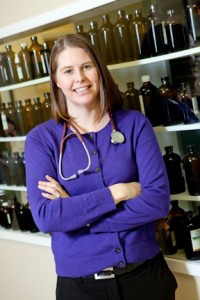Cholesterol is biosynthesized by all cells and is an essential structural component of cell membranes. Cholesterol is a precursor for the biosynthesis of steroid hormones, bile acids and vitamin D. Assessing a hormone case without a cholesterol value means we don’t have the full picture. If there is low cholesterol or inflammatory cholesterol then good hormones can’t be made. Cholesterol is metabolized to estradiol in the liver. These metabolic pathways. detoxification pathways require fuel in the form of vitamins and minerals. When important detoxification pathways aren’t working, then cholesterol is converted to cortisol, instead of testosterone and estradiol, but can also create inflammation hormones. As clinicians, our job is to figure out what pathways are working and not working. Using labs as assessment tools, we can get a strong baseline, and see if our plans work when follow up testing shows changes.
Hormones interact with our DNA to influence metabolic enzyme control. Our genetics have a part to play in which pathways get priority and which pathways we have difficulty. If we stabilize and support our weak pathways, we can generate balanced hormones. Enzymes such as the COMT break down neurotransmitters, but this enzyme is also necessary in safely detoxifying estradiol. When this enzyme is less efficient, inflammatory estrogens can build up in tissue. Knowing which pathways could use support may help find a direction for treatment.
Blood sugar dysregulation, thyroid function, liver detoxification pathways and bowel function are also key factors to assess hormone irregularities. Assessment via labs tests is also necessary for looking at a difficult hormone regulation case to obtain a clear picture.
CE Credits
CONO: Category A: General -1.0 credit
British Columbia: Category C- General -1.0 credit
AANP: General -1.0 credit
OANP: General -1.0 credit

Dr Carissa Doherty, ND
Dr Carissa Doherty Naturopathic Doctor. She completed her premedical studies at the University of Guelph obtaining a Specialized Honours degree in Bio-Medical Toxicology. During her undergraduate years, Carissa was fortunate enough to be one of the first people in Canada to work in product development with inulin, a complex carbohydrate, now used widely in the supplement industry as a pleasant tasting fibre.
In 2002, Carissa received her Doctorate in Naturopathic Medicine at the Canadian College of Naturopathic Medicine and remains a member in good standing to this day.
Dr Carissa Doherty, ND, and her sister Dr Sonya Doherty, ND, founded The Natural Care Clinic in Burlington in 2005. The Natural Care Clinic is an internationally recognized centre of care and education. The Natural Care Clinic team is committed to improving awareness about chronic disease and how Naturopathic Medicine can improve quality of life. Their approach to treating chronic illness has become world renowned drawing patients to the Natural Care Clinic from all over Ontario, Canada, the United States, Asia and Europe. The Natural Care Clinic team, led by Dr Carissa Doherty ND, provides educational conferences for healthcare providers focused on management of complex disorders.
In addition to a general family practice, Dr Carissa Doherty takes a special interest in Lyme disease and chronic infections, methylation medicine and environmental medicine and has an advanced training in Lyme disease.

